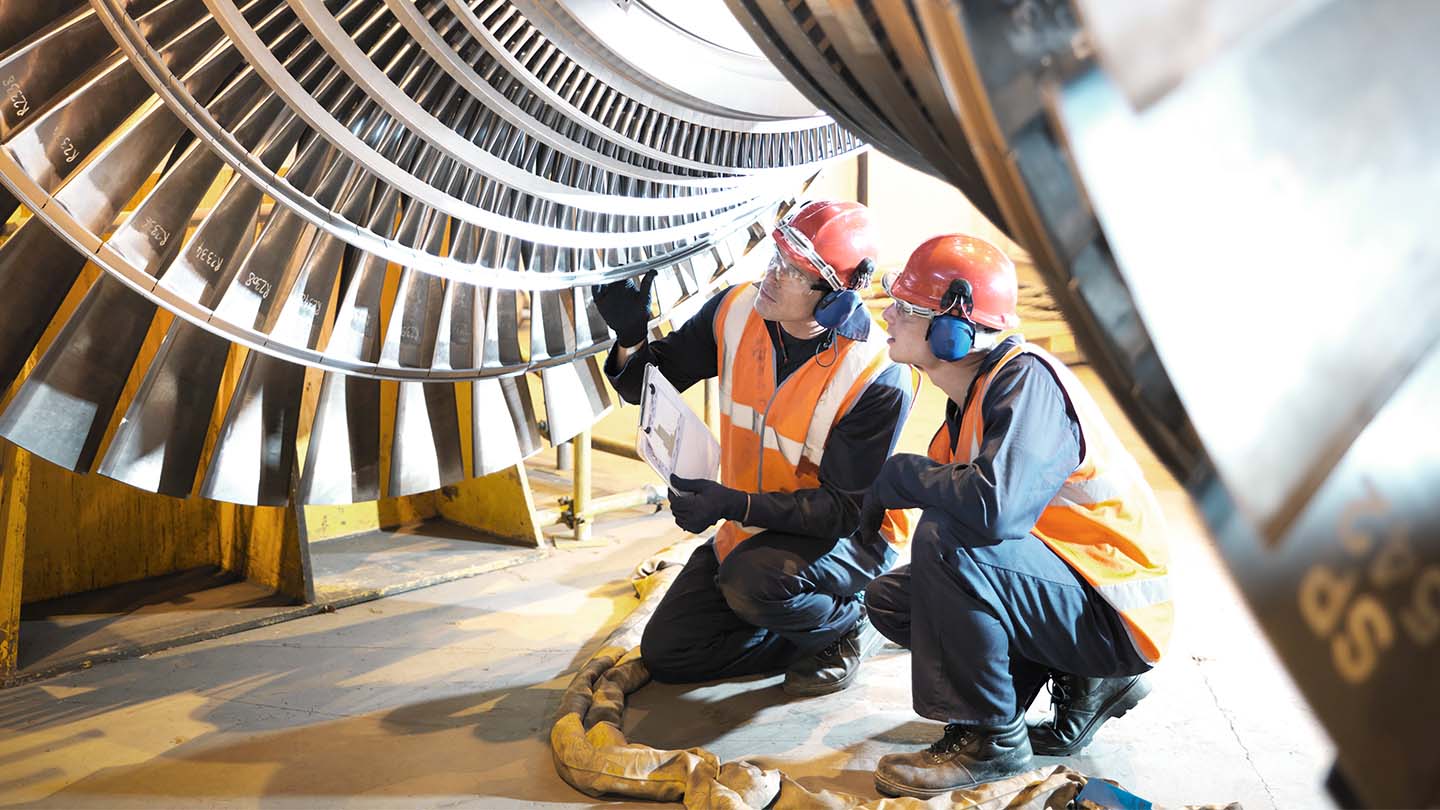From startups to legacy brands, you're making your mark. We're here to help.
-
Innovation Economy
Fueling the success of early-stage startups, venture-backed and high-growth companies.
-
Midsize Businesses
Keep your company growing with custom banking solutions for middle market businesses and specialized industries.
-
Large Corporations
Innovative banking solutions tailored to corporations and specialized industries.
-
Commercial Real Estate
Capitalize on opportunities and prepare for challenges throughout the real estate cycle.
-
Community Impact Banking
When our communities succeed, we all succeed. Local businesses, organizations and community institutions need capital, expertise and connections to thrive.
-
International Banking
Power your business' global growth and operations at every stage.
Key Links
Prepare for future growth with customized loan services, succession planning and capital for business equipment.
-
Asset Based Lending
Enhance your liquidity and gain the flexibility to capitalize on growth opportunities.
-
Equipment Financing
Maximize working capital with flexible equipment and technology financing.
-
Trade & Working Capital
Experience our market-leading supply chain finance solutions that help buyers and suppliers meet their working capital, risk mitigation and cash flow objectives.
-
Syndicated Financing
Leverage customized loan syndication services from a dedicated resource.
-
Commercial Real Estate
Capitalize on opportunities and prepare for challenges throughout the real estate cycle.
-
Employee Stock Ownership Plans
Plan for your business’s future—and your employees’ futures too—with objective advice and financing.
Key Links
Serving the world's largest corporate clients and institutional investors, we support the entire investment cycle with market-leading research, analytics, execution and investor services.
-
Institutional Investors
Putting your long-tenured investment teams on the line to earn the trust of institutional investors.
-
Markets
Direct access to market leading liquidity harnessed through world-class research, tools, data and analytics.
-
Prime Services
Helping hedge funds, asset managers and institutional investors meet the demands of a rapidly evolving market.
-
Global Research
Leveraging cutting-edge technology and innovative tools to bring clients industry-leading analysis and investment advice.
-
Securities Services Solutions
Helping institutional investors, traditional and alternative asset and fund managers, broker dealers and equity issuers meet the demands of changing markets.
Key Links
Providing investment banking solutions, including mergers and acquisitions, capital raising and risk management, for a broad range of corporations, institutions and governments.
-
Center for Carbon Transition
J.P. Morgan’s center of excellence that provides clients the data and firmwide expertise needed to navigate the challenges of transitioning to a low-carbon future.
-
Corporate Finance Advisory
Corporate Finance Advisory (“CFA”) is a global, multi-disciplinary solutions team specializing in structured M&A and capital markets. Learn more.
-
Development Finance Institution
Financing opportunities with anticipated development impact in emerging economies.
-
Sustainable Solutions
Offering ESG-related advisory and coordinating the firm's EMEA coverage of clients in emerging green economy sectors.
-
Mergers and Acquisitions
Bespoke M&A solutions on a global scale.
-
Capital Markets
Holistic coverage across capital markets.
Your partner for commerce, receivables, cross-currency, working capital, blockchain, liquidity and more.
Key Links
A uniquely elevated private banking experience shaped around you.
-
Banking
We have extensive personal and business banking resources that are fine-tuned to your specific needs.
-
Investing
We deliver tailored investing guidance and access to unique investment opportunities from world-class specialists.
-
Lending
We take a strategic approach to lending, working with you to craft the right financing solutions matched to your goals.
-
Planning
No matter where you are in your life, or how complex your needs might be, we’re ready to provide a tailored approach to helping your reach your goals.
Whether you want to invest on your own or work with an advisor to design a personalized investment strategy, we have opportunities for every investor.
-
Invest on your own
Unlimited $0 commission-free online stock, ETF and options trades with access to powerful tools to research, trade and manage your investments.
-
Work with our advisors
When you work with our advisors, you'll get a personalized financial strategy and investment portfolio built around your unique goals-backed by our industry-leading expertise.
-
Expertise for Substantial Wealth
Our Wealth Advisors & Wealth Partners leverage their experience and robust firm resources to deliver highly-personalized, comprehensive solutions across Banking, Lending, Investing, and Wealth Planning.
For Companies and Institutions
-
Commercial Banking
From startups to legacy brands, you're making your mark. We're here to help.
-
Institutional Investing
Serving the world's largest corporate clients and institutional investors, we support the entire investment cycle with market-leading research, analytics, execution and investor services.
-
Payments
Your partner for commerce, receivables, cross-currency, working capital, blockchain, liquidity and more.
-
Credit & Financing
Prepare for future growth with customized loan services, succession planning and capital for business equipment.
-
Investment Banking
Providing investment banking solutions, including mergers and acquisitions, capital raising and risk management, for a broad range of corporations, institutions and governments.
For Individuals
-
Private Bank
A uniquely elevated private banking experience shaped around you.
-
Wealth Management
Whether you want to invest on you own or work with an advisor to design a personalized investment strategy, we have opportunities for every investor.
Explore a variety of insights.
Key Links
Insights by Topic
Explore a variety of insights organized by different topics.
Key Links
Insights by Type
Explore a variety of insights organized by different types of content and media.
Key Links
We aim to be the most respected financial services firm in the world, serving corporations and individuals in more than 100 countries.
Key Links
- Insights
- Banking
- Commercial Banking
- To plan for the future, Harpoon Brewery looked to its people
Dan: The simple answer of why I got into the businesses is that I love beer.
The scene was the same in the US and the seventies and eighties it was light yellow lagers coast to coast there was no choice in beer.
So, I started talking with a college classmate of mine and said to me, what do you think about leaving your banking job and opening a brewery here in Boston? And decided to join him and went out and raised $430,000 to start a brewery on the waterfront in Boston.
Our first product was Harpoon Ale back in the mid 1980s but in 1993 our summer seasonal was Harpoon IPA and the next year the outcry was we had to make it year-round. So, we brought it back as a summer seasonal, then just kept making it and it took off.
Back in the summer of 2014 we had been working on an ESOP transaction. They stand for employee stock ownership plan.
Rick: An ESOP is the shares in the company transform from a existing owner to the employees. It's no different than any other sort of stock plan except the employees are actually the beneficiaries of the plan.
Dan: The ESOP transaction could not have happened without bank partners and JP Morgan they have the deepest expertise and getting ESOP leverage, ESOP transactions completed.
Rick: JP Morgan Chase adds value to middle market companies because we help them with treasury services, we help them with capital, we helped them with international needs.
Jamie Dimon: We bank companies for long period of time, we get to know them in their communities. We're not fair-weather friends, but it's particularly fun to watch a company like this from out of nowhere, you know, grow out of the ground and build something.
Dan: You have banks that are truly partners to businesses and individuals can make a great deal of difference in people's lives.
I think we've seen that at Harpoon, and I think JP has been, they're kind of right alongside with us.
We wanted to be a Boston brewery. I think New England is a really proud region. We've always just kind of been a New England company. Always been proud of our deep involvement in the community.
Rick: Well middle market companies like Harpoon are essential to a community because they provide jobs. Their employees live in the community. So, they create that ecosystem.
Dan: Our festival we have 500,000 people visit us at our two breweries every year. So, we really are about not just the beer, but bringing people together around beer.
And so it just lends itself. Love beer, love life. And really make things better. And so that's kind of where that motto came from. And we try to live it every day.
END
It was a July day in 2014, and some 200 employees of Harpoon Brewery had assembled in the company's Beer Hall on the Boston Seaport. What would usually have been a lively gathering was clouded by an air of nervousness as employees eyed the strangers in suits lining the walls—lawyers and bankers who had been visiting CEO Dan Kenary with increasing frequency in recent months. Everyone knew how crowded the craft beer market had become and how common it was for independent brewers to sell to investors or a competitor. Would they be next?
Kenary then got onstage. He'd brought everyone together, he said, to announce the new owners of Harpoon.
"You could've heard a pin drop at that point," he recalled. "And then I said: 'I'd like you to turn to the person next to you and shake their hand. You are now all the owners of 48% of Harpoon.' The place erupted."
Kenary describes it as one of his most rewarding moments in the three decades since he founded Harpoon with two college friends. The three were originally inspired by the rich, varied beer culture they experienced together while backpacking around Europe. At the time, light yellow lagers dominated the American market, but Kenary’s love of beer pushed him to leave a job in banking to be at the vanguard of the U.S. craft beer movement.
A succession plan for the passionate
The wild cheers from his staff on that summer day in the Harpoon Beer Hall were validation that Kenary had made the right decision to transfer ownership of the company through an employee stock ownership plan (ESOP).
As a succession plan, ESOPs can be an especially good fit for owners looking to maintain some independence and reward their people—which is what made it such a natural extension of the participatory, engaged culture of Harpoon.
Harpoon chose JPMorgan Chase to lead and help finance its ESOP transaction after Kenary convinced his partner and other Harpoon investors that it was the best decision for the company.
The expertise of JPMorgan Chase’s ESOP Advisory Group immediately set them at ease about their decision. "The ESOP community is small," Kenary said. "So you'd say, who should we talk to? And the name that would always come up was JPMorgan Chase."
Rooted in community
One of the individuals in the Beer Hall that summer day was Rick MacDonald, New England Region Manager for Middle Market Banking, and someone who could appreciate why the company needed to maintain its local ownership.
"Harpoon is a Boston institution,” he explained. “It was important to make the ESOP work to keep the company’s culture in place."
Homegrown, middle market companies like Harpoon play a critical role in fueling their local economies.
"We bank companies for long periods of time and we get to know them, we're in their communities," said Jamie Dimon, Chairman and CEO of JPMorgan Chase & Co. "It's particularly fun to watch a company like [Harpoon] grow out of the ground and build something."
Putting people at the center
While Kenary is the CEO steering the company through what has become a fiercely competitive craft beer market, he says his staff is the beating heart of the company. "If we treat our people well, they're going to treat our customers well and it's going to be reflected in everything that we do."
The information contained herein is not advice on legal, tax, investment, accounting, regulatory, technology or other matters. You should always consult your own financial, legal, tax, accounting, or similar advisors before entering into any agreement for Chase products or services. In no event shall Chase or any of its directors, officers, employees or agents be liable for any use of, for any decision made or action taken in reliance upon or for any inaccuracies or errors in, or omissions from, the information herein.
The information does not include all applicable terms or issues and is not intended as an offer or solicitation for the purchase or sale of any product or service. Products and services offered by Chase and its affiliates are subject to applicable laws and regulations, as well as our service terms and policies. Not all products and services are available in all geographic areas or to all customers. In addition, eligibility for particular products and services is subject to satisfaction of applicable legal, tax, risk, credit and other due diligence, JPMorgan Chase's "know your customer," anti-money laundering, anti-terrorism and other policies and procedures.
Products and services may be provided by Commercial Banking affiliates, securities affiliates or other JPMC affiliates or entities. In particular, securities brokerage services other than those that can be provided by Commercial Banking affiliates will be provided by appropriate registered broker/dealer affiliates, including J.P. Morgan Securities LLC and J.P. Morgan Institutional Investments Inc. Any securities provided or otherwise administered by such brokerage services are not deposits or other obligations of, and are not guaranteed by, any Commercial Banking affiliate and are not insured by the Federal Deposit Insurance Corporation.
© 2022 JPMorgan Chase & Co. All rights reserved. JPMorgan Chase Bank, N.A. Member FDIC. Visit jpmorgan.com/cb-disclaimer for disclosures and disclaimers related to this content.
Related insights

Banking
Australia’s M&A outlook: Four themes to watch at mid-year
Jul 02, 2025
What is the outlook for mergers and acquisitions in Australia and what are the key trends driving dealmaking in the region? Explore the M&A outlook.

Banking
Shaping the path forward: Key takeaways from the European Healthcare Symposium
Jun 18, 2025
At J.P. Morgan’s recent European Healthcare Symposium, themes including innovation, leadership and strategic growth took center stage.

Banking
Navigating the future: Key insights from the Technology, Media and Communications Conference
Jun 11, 2025
Explore transformative trends from J.P. Morgan’s annual Technology, Media and Communications (TMC) Conference. Discover how AI, 5G, cloud adoption, and cybersecurity are shaping the future of these sectors.

Banking
How equipment financing preserves business liquidity
Jun 11, 2025
With strategic financing of equipment, business leaders can access the tools needed to thrive without compromising their company’s financial health or cash flow flexibility.

Banking
Jun 10, 2025
Delve into the success of AI-focused software, an increase in M&A exits and other software market trends in our report.

Banking
Venture capital trends in Australia and New Zealand
Jun 04, 2025
From data protection to growing foreign investments, learn more about the region’s venture capital landscape.

Banking
Understanding equipment financing for businesses
May 23, 2025
When acquiring equipment, companies should consider multiple factors, including their business models.

Banking
Using business loans to drive growth
May 19, 2025
Explore common growth scenarios where debt can be a strategic tool and learn how to prepare for more productive conversations with your banker about debt.
You're now leaving J.P. Morgan
J.P. Morgan’s website and/or mobile terms, privacy and security policies don’t apply to the site or app you're about to visit. Please review its terms, privacy and security policies to see how they apply to you. J.P. Morgan isn’t responsible for (and doesn’t provide) any products, services or content at this third-party site or app, except for products and services that explicitly carry the J.P. Morgan name.